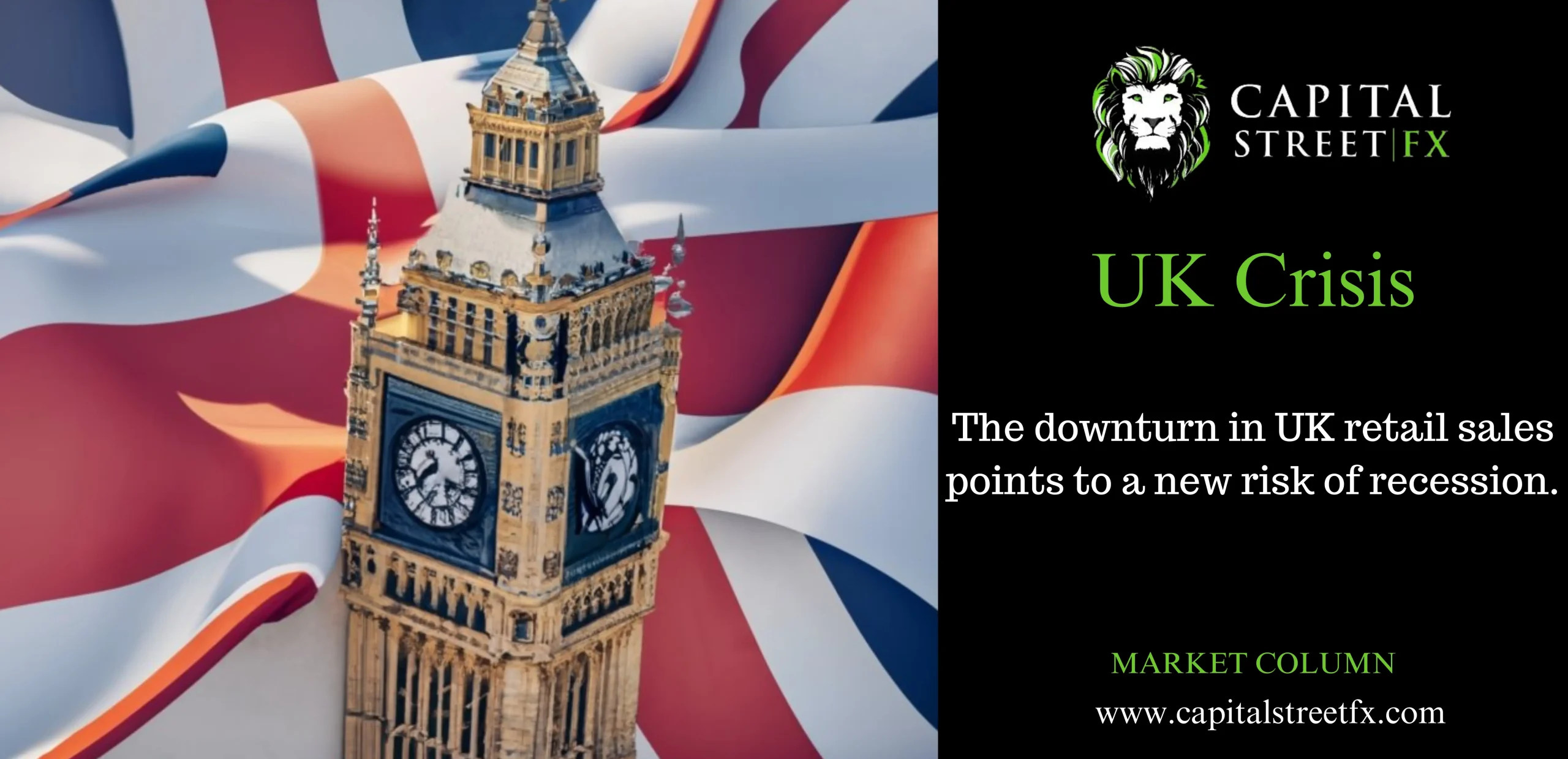The downturn in UK retail sales points to a new risk of recession.
Official data released on Friday revealed that British retailers experienced the most significant sales decline in almost three years in December. This development heightens the concern that the economy might have entered a recession in the latter part of the previous year.
The Office for National Statistics (ONS) reported that a shift in Christmas shopping patterns, with people making purchases earlier than usual, particularly for food, played a role in the contraction of retail sales volumes by 3.2% between December and November.
This marked the most substantial monthly decline since January 2021, bringing the sales level to its lowest point since May 2020.
The result was more unfavorable than anticipated, surpassing all predictions in a Reuters survey of economists, which had expected a 0.5% decline.
In volume terms, retail sales excluding fuel were 2.1% lower compared to the same period last year, while in cash terms, they showed a modest 2.3% increase, marking the smallest annual rise since December 2022.
Despite aligning with gloomy retail assessments from the Confederation of British Industry and British Retail Consortium, Friday’s data seemed contradictory to some upbeat Christmas trading reports issued by major British supermarkets.
The pound saw a slight depreciation against the U.S. dollar and euro, while British government bond prices experienced an uptick in reaction to the data. Conversely, British stocks surged as optimism grew regarding the potential for earlier interest rate cuts from the Bank of England.
The Office for National Statistics (ONS) anticipates that retail sales could have a negative impact of 0.04 percentage points on the British economic output in the fourth quarter. This factor might be crucial in determining whether the economy registers a negative or flat reading for the period.
The third quarter witnessed a contraction of 0.1% in the economy.
While the definition of a recession as two consecutive quarters of contraction is considered arbitrary by many economists, it holds significant political implications for Prime Minister Rishi Sunak, especially in an election year.
With the Conservative Party trailing significantly behind the opposition Labour Party in polls, Sunak’s appeal to voters relies on the notion that Britain is progressing positively—a narrative that would be compromised by a recession diagnosis.
Finance Minister Jeremy Hunt, addressing Davos on Thursday, expressed his intention to proceed with tax cuts as the Conservatives anticipate a pivotal annual budget to rejuvenate their prospects.
Excluding fuel, retail sales in the last quarter of 2023 declined by 1.4% in volume compared to the previous year and increased by 3.9% in cash terms, marking the slowest spending growth since the three months leading to February.

